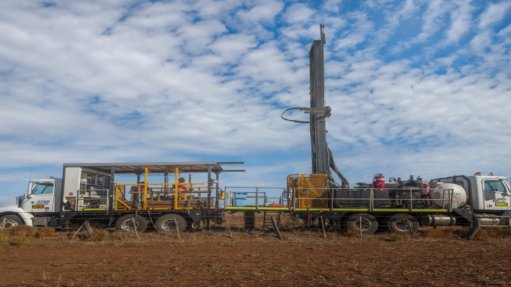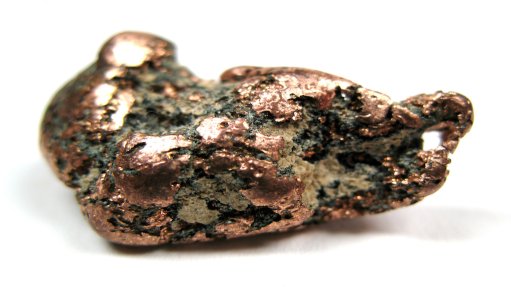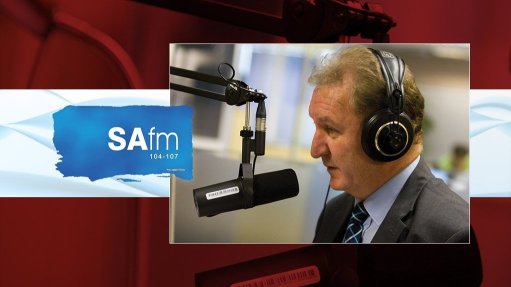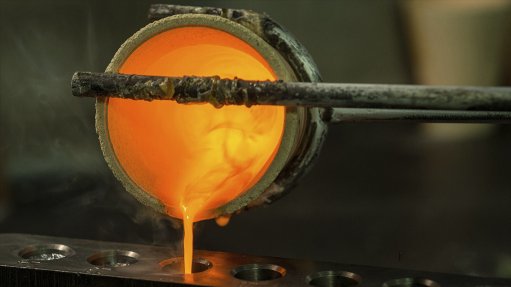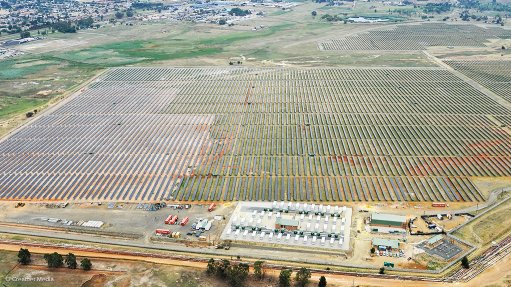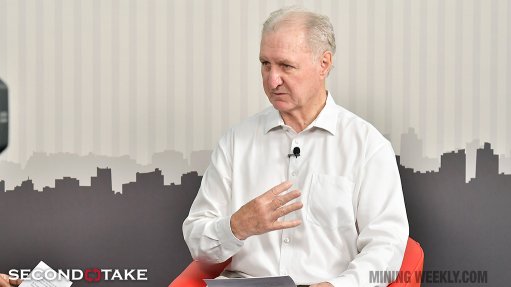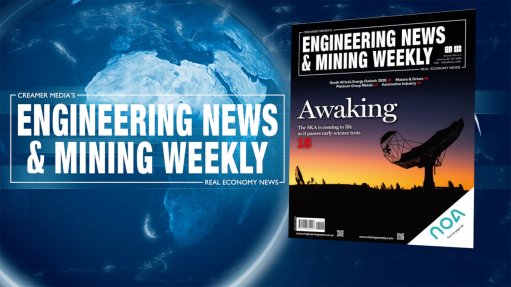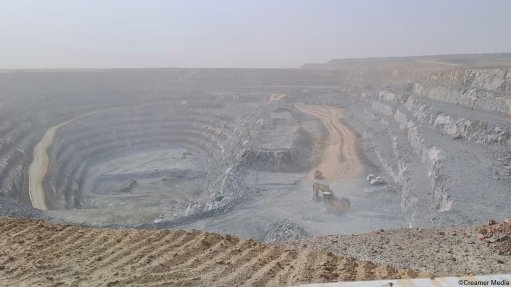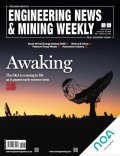Digital revolution may quicken advance towards ‘mine of the future’
The digital revolution may provide the impetus for the mining industry to innovate at an exponential rate, as new digital technologies and developments converge on mining technologies to realise the digital mine of the future.
Speaking at the WorleyParsons Supplier Grow conference, held in Johannesburg last month, advisory firm Deloitte Africa energy and resource leader Andrew Lane referred to Moore’s Law of exponential technology development, saying that “while [the industry has] been spectacularly uninnovative for hundreds of years, maybe, just maybe, [it is] at the point where [it starts] to go up the exponential curve”.
He highlighted that information and communication technology (ICT) was converging on the technologies of other sectors, including mining and energy, resulting in significant amounts of real-time information that, when applied with data analytics, could be used timeously to improve efficiency and safety and drive down costs.
Lane pointed out that real-time information and data analytics could be a game changer for decision-makers, as it would allow for dynamic decisions to be made as information is received.
He added that companies would need to develop a digital platform from which to build on if they were to realise greater levels of operational control at mines. “You are dreaming if you think you are going to be making continuous improvements or step changes to a process that is fundamentally not in control.”
Lane pointed out that the application of digital technologies in the mining industry was predominantly in design and processing applications. However, mining and resource development applications were receiving increasing attention and could provide the next “big pay-off” for industry, namely the digital mine, he asserted.
According to Deloitte’s analysis, the digital mine will focus on three key areas – core operational processes, the information layer or digital mine nerve centre, and support processes.
Core operational processes refer to automated mining value chains enabled by a number of digital technology interventions, such as autonomous vehicles, drones, wearable technologies and real-time data capture through technology enabled by the Internet of Things (IoT), as well as the “digital twin”, which refers to a digital model or representation of a physical environment.
Lane pointed out that employing more digital technologies to core operational processes would enable mines to link equipment and the workforce, allowing for significant amounts of information to be collected. “Ultimately, what you are trying to do here is overcome information flows that depend on people and paper. You want real-time information that is complete, accurate and on time.”
From a health and safety standpoint, this will enable mines to monitor every employee’s locations and even the employee’s vital signs in real time. The information can be used when, for example, a worker is injured, but can also be correlated with health and safety information to identify possible danger areas, as well as any gaps in health and safety practices.
Lane noted that Deloitte had been working with a processing plant in Canada, which has developed a digital twin of the operation, providing a three-dimensional representation of the entire plant including all the equipment. This enables all plant processes to be simulated and optimisation initiatives to be identified, including plant configuration and energy consumption.
The digital mine nerve centre will correlate the various data streams generated across the mining value chain in multiple time horizons, significantly improving mining companies’ ability to plan, control and make decisions. Real-time data can then be used to drive rapid operational improvements; allow for orebody, financial and mine plan models to be updated more frequently; and shorten and improve planning cycles.
“The digital [mine] nerve centre is where it all comes together,” said Lane. He explained that real-time data, coupled with other information, such as historical or financial data, can be used to better predict in-house and external factors, which might impact on an operation. This allows for correlating information and finding patterns, as well as cause and effect relationships in disparate data. “Theoretically, if you have enough data, you can predict anything.”
Support processes refer to digital solutions that simplify and improve the efficiency of corporate and support processes by reimagining enterprise resource planning systems on more cost-effective, cloud-based platforms. Further digital development in, for example, robotic process automation, which automates repetitive human activities, as well as artificial intelligence, will also positively impact on the support processes of the digital mine.
While the digital revolution is an inescapable fact and will result in the development of the digital mine of the future, Lane asserted, it would not be developed by one entity. He concluded that it would be developed in an ecosystem of partnerships formed by diverse peoples, technologies and capabilities.
Article Enquiry
Email Article
Save Article
Feedback
To advertise email advertising@creamermedia.co.za or click here
Announcements
What's On
Subscribe to improve your user experience...
Option 1 (equivalent of R125 a month):
Receive a weekly copy of Creamer Media's Engineering News & Mining Weekly magazine
(print copy for those in South Africa and e-magazine for those outside of South Africa)
Receive daily email newsletters
Access to full search results
Access archive of magazine back copies
Access to Projects in Progress
Access to ONE Research Report of your choice in PDF format
Option 2 (equivalent of R375 a month):
All benefits from Option 1
PLUS
Access to Creamer Media's Research Channel Africa for ALL Research Reports, in PDF format, on various industrial and mining sectors
including Electricity; Water; Energy Transition; Hydrogen; Roads, Rail and Ports; Coal; Gold; Platinum; Battery Metals; etc.
Already a subscriber?
Forgotten your password?
Receive weekly copy of Creamer Media's Engineering News & Mining Weekly magazine (print copy for those in South Africa and e-magazine for those outside of South Africa)
➕
Recieve daily email newsletters
➕
Access to full search results
➕
Access archive of magazine back copies
➕
Access to Projects in Progress
➕
Access to ONE Research Report of your choice in PDF format
RESEARCH CHANNEL AFRICA
R4500 (equivalent of R375 a month)
SUBSCRIBEAll benefits from Option 1
➕
Access to Creamer Media's Research Channel Africa for ALL Research Reports on various industrial and mining sectors, in PDF format, including on:
Electricity
➕
Water
➕
Energy Transition
➕
Hydrogen
➕
Roads, Rail and Ports
➕
Coal
➕
Gold
➕
Platinum
➕
Battery Metals
➕
etc.
Receive all benefits from Option 1 or Option 2 delivered to numerous people at your company
➕
Multiple User names and Passwords for simultaneous log-ins
➕
Intranet integration access to all in your organisation






